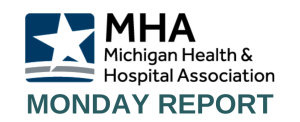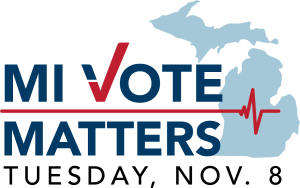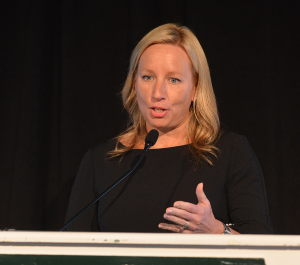The MHA Board of Trustees continued work on advancement of the 2023-2024 Strategic Action Plan at its April 10 meeting, with focus on its four pillars: workforce support and innovation, viability, improved behavioral healthcare and health equity. Opposition to government mandated staffing ratios remains a top priority for the association within the workforce pillar, as it has been shown to be a harmful approach to addressing workforce shortages. Instead, the association supports specific measures to address educational barriers, support innovation and grow the talent pipeline.
The board recognized the work within the viability pillar through the MHA and the Michigan Council for Maternal and Child Health partnership to secure $10 million in state grant funding to assist Michigan’s birthing hospitals to pay for new mandatory state Maternal Level of Care (MLC) verifications. Pending state legislation will require the Michigan Department of Health and Human Services (MDHHS) to register each birthing hospital’s MLC verification. Under the terms of the grant, the MDHHS will provide funding for birthing hospitals that fully participate in MI-AIM and complete an application to participate in the MLC verification through The Joint Commission (TJC). Funding per hospital will range from $50,000-$400,000 this fiscal year and the MHA Keystone Center will fund TJC fees. More information will be provided in an upcoming member webinar.
The board also received the final report from the Health Equity Task Force and endorsed converting the task force into a standing Health Equity Council for the 2024-2025 program year to continue the work of the board to ensure that high quality, equitable and safe care is available for everyone. The board recognized the association’s work in furtherance of behavioral health priorities through continued input on behavioral health legislation, Psychiatric Residential Treatment Facilities and the hosting of its ongoing five-part behavioral health member webinar series.
Lastly, the board approved new member applications from R1 RCM, Origami and Bay Street Orthopedics and Spine.
Members with questions about the MHA Board of Trustees may contact Amy Barkholz at the MHA.


 Healthcare Community Urged to Vote in Nov. 8 General Election
Healthcare Community Urged to Vote in Nov. 8 General Election MHA CEO Report — Your Vote Matters
MHA CEO Report — Your Vote Matters 
 News to Know
News to Know
